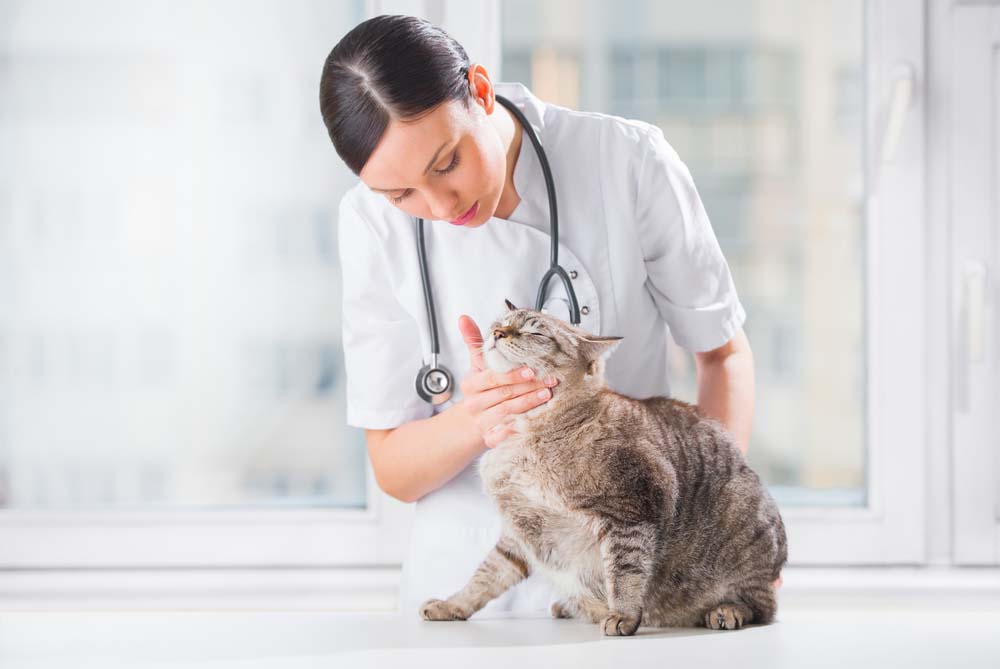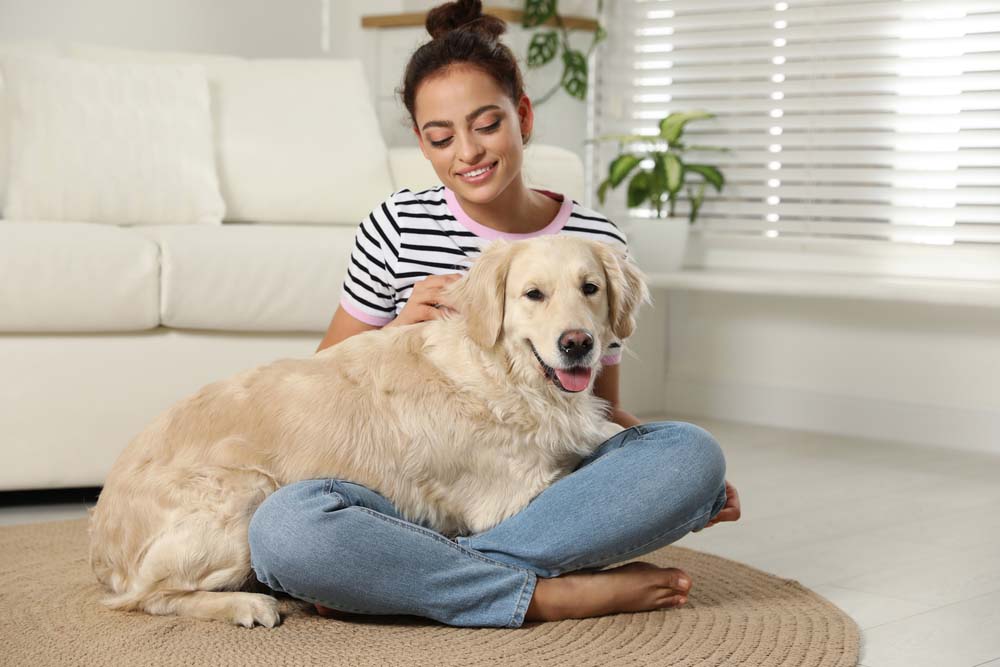
Take your pet to the vet to diagnose and treat anxiety
Read Time: 4 minutes
Just like people, pets can become anxious. Certain breeds may be more anxiety-prone than others, but it’s not an uncommon condition in pets. It is important that pet owners know how to address it in order to keep their pets happier and healthier. Plus, anxiety can sometimes bring out the worst in terms of pet behaviors, so it’s also in your own best interest to keep your pet calm and happy.
What Causes Pet Anxiety?
Before you can start treating your pet’s anxiety, it’s important to know what can cause it.
What Causes Anxiety in Dogs?

In dogs, anxiety can be caused by:
- Separation
- Fear
- Aging
- Illness
- Pain
- Stress
- Lack of social interaction
What Causes Anxiety in Cats?
In cats, anxiety can be caused by:
- Trauma
- Lack of socialization
- Pain
- Illness
- Change
- Stress
- Exposure to a toxin
- Nervous system diseases
What Are the Symptoms of Pet Anxiety?
You’ll also want to be certain that your pet does, indeed have anxiety. The symptoms can differ between cats and dogs, so it’s important to learn what symptoms to look out for.
What Are the Symptoms of Anxiety in Dogs?
In dogs, the symptoms of anxiety can include:
- Panting
- Drooling
- Urinating in the house
- Defecating in the house
- Aggression
- Pacing
- Restlessness
- Being destructive
- Depression
- Barking too much
- Repetitive behaviors
- Compulsive behaviors
What Are the Symptoms of Anxiety in Cats?

In cats, the symptoms of anxiety can be the following:
- Dilated pupils
- Ears held back
- Breathing faster
- Leaning away
- Staring
- Hair standing on end
- Aggression
How Can You Treat Pet Anxiety?
The best way to treat pet anxiety is to remove the cause of the stress, if possible. If there’s something in particular that your pet is considering a threat, removing that threat will calm them down. The source of a pet’s anxiety isn’t always obvious or it may not be something you can easily do something about.
Take Your Pet to the Vet

The first step in treating your pet’s anxiety is to visit the vet. If you’re not sure what is causing the anxiety, your vet can help you figure it out. Additionally, your vet can help to determine the right way to treat your pet’s anxiety.
Comfort Your Pet
If possible, try to comfort your pet. Some pet owners believe that soothing a pet might reward them for their anxious behavior, but that’s typically not true. If you’re unsure, ask your vet, but it’s generally safe to comfort a fearful pet.
Desensitization
If your pet is afraid or stressed by a particular thing, then it may be possible to desensitize them to it. For example, if moving to a new house has stressed your cat, then time living in the new place will help to calm any anxiety. If your dog is afraid of something in particular, gradually introducing them to that thing in small doses repeatedly while reinforcing positive behavior with rewards can help.
Do Not Punish Your Pet

Punishing your pet for their anxiety will just make it worse. Not only would your pet be afraid of the source of their anxiety but they would also be afraid of your reaction to it on top of that. Even if their behavior is destructive, it’s important to remain calm and collected. Punishment could push destructive behavior into aggression, which is the opposite of the goal.
Anxiety Medication
Your vet may prescribe anti-anxiety medication for you to give to your pet. It may take some time to work, just like with human medications. It’s also important to pay attention to your pet’s reaction to it. If your pet is calm and happy, then the medication is likely working as it should. They shouldn’t be acting like a zombie and if they are, talk to your vet.
Behavior Modification

Behavior modification is essentially training your pet to behave differently to stimuli that stress them. Your vet may have some suggestions, but it’s a good idea to talk to a professional trainer who can help you. Additionally, rewarding the behavior you want to see is important so that your pet associates that behavior with treats or other rewards despite the presence of the stressor.
Make Sure Your Pet Gets Exercise
Whether you take your dog for a walk or play with your cat indoors, exercise is a must for reducing anxiety. It works for humans because working out releases certain chemicals in the brain. Exercise helps your pet by using up some excess energy that could otherwise go toward generating stress and anxiety. Exercising your pet is also good for generally improving behavior.

